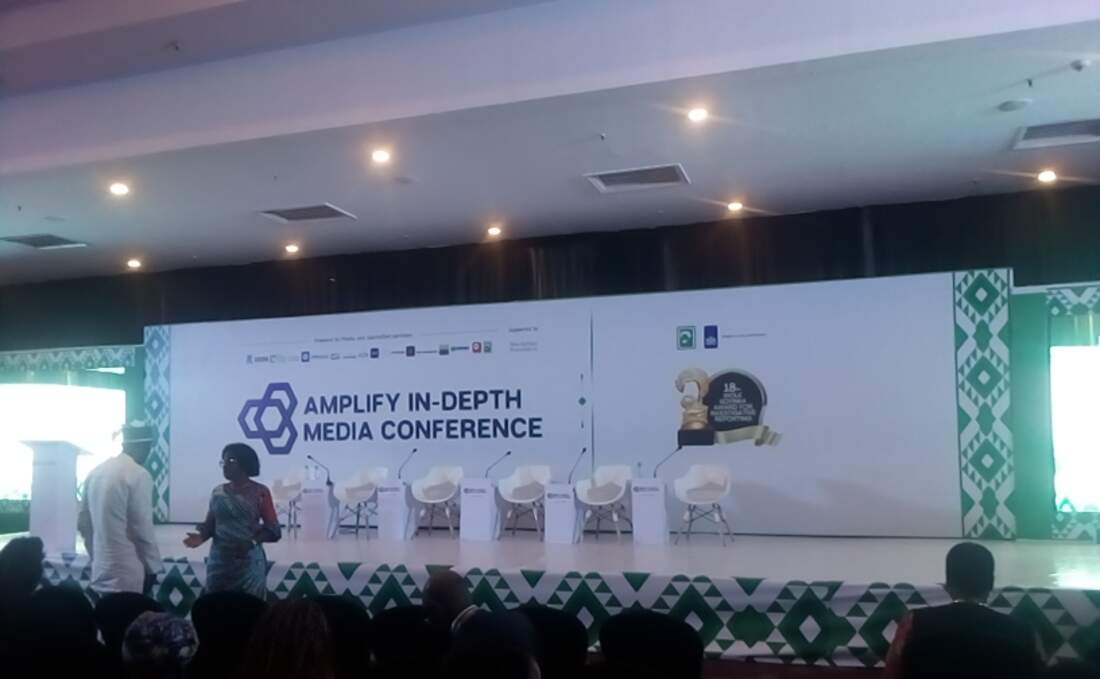Wole Soyinka Centre Laments Duplication Of News In Nigeria, Tasks Journalists On Innovation
The Wole Soyinka Centre for Investigative Journalism (WSCIJ) on Friday lamented the “duplication” of same news content across media houses.
WSCIJ advised journalists to be innovative in telling stories that impact on the average Nigerian.
Advertisement
The Executive Director/CEO, WSCIJ, Motunrayo Alaka, said this while charging journalists on the need for investigative journalism during its 2023 edition of the Amplify In-depth Media (AIM) Conference and Awards held in Abuja.
Alaka, who taught during a workshop at the event, said what obtains nowadays in some newspapers, “are like duplications” and “where somebody will write, send and other people will now rewrite.”
She told attendees that Nigeria may not experience positive change “if your journalism is not innovative.”
She added “you are supposed to be digging up the speeches and interrogating them. This person said this, this, this. Is it true?”
Advertisement
Alaka maintained that what makes the journalism profession interesting is service to the public and that through investigative journalism, one can make personal impact in the lives of individuals.
But she warned the attendees against cooking up data to deceive the public.
“Some people get grants to do stories and they still cook up data, they will not even do the hard work of breaking data down or finding the right data or making sure that a story is accurate,” Alaka added.
Alaka said even though journalism in Nigeria started “so elitist”, the journalism that is going to make a difference must be local.
She charged journalists to follow-up on promises and policies made by politicians thereby holding them accountable.
Advertisement
“If Nigerians know their rights and if journalism activates civic participation, positive changes will happen faster in the country,” she said.
In her welcome speech, Alaka said more than ever, the fourth estate must rise to the task of handling the delicate balance of deploying technology while interrogating its intrusive nature and its capacity to enable misinformation, and disinformation, which erode the credibility of the media at an unimaginable scale.
“On the other hand, we are under real-time pressure to pursue sustainable strategies. The financial viability of journalism is not optional. It is existential. The media must adopt innovative techniques and explore frameworks that allow it to thrive.,” she added.
Giving his keynote address, the Publisher, Premium Times and Founder/CEO of the Centre for Journalism Innovation & Development (CJID), Dapo Olorunyomi, said journalism as a practice must have certain elements like truth telling.
“One cannot deviate from truth telling as a journalist,” Olorunyomi said, adding that aside truthfulness, a journalist’s account of events must be accurate.
“Any claim a journalist makes has to be verifiable. If you will be a journalist, as we have said, first and foremost, your credentials would be that you are truth telling, secondly, that you are dealing with only accurate claims, and thirdly, that everything you say is verifiable.,” the founder added.
Advertisement
The 2-day event, being held at the Abuja Continental Hotel, was graced by hundreds of participants drawn from the media, government, diplomatic corps members, civil society representatives, education organisations, and other stakeholders.
The conference would see the public presentation of the 2023 Wole Soyinka Award for Investigative Reporting (WSAIR), aimed at recognising best investigative reports.



